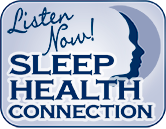“Tongue Zapper” in the News as Aid for Snoring and Apnea
Recent headlines in the news have described a potential new treatment option for snoring and apnea sufferers. The excitement on this potential treatment option lies in the fact that 40-60% of patients that have prescribed the treatment of CPAP (Continuous Positive Airway Pressure) do not use their machines. Many more who have snoring symptoms without apnea are not using anything at all to control their snoring, often causing disturbances with their sleep partners. Sleep apnea is a condition in which a person’s airway is blocked repeatedly throughout the night, from 5 to over 100 times per night. Left untreated, obstructive sleep apnea can lead to life threatening conditions. Some of these include high blood pressure, stroke, heart attack and more.
This new “tongue-zapper” therapy is based on hypoglossal nerve stimulation. With this treatment a small pacemaker like generator is implanted under the skin near the collarbone. A small wire leads to the hypoglossal nerve near the base of the tongue. The relaxation of the tongue, jaw and associated muscles and tissues often lead to the airway blocks that occur during apnea. As breathing is monitored by sensors, a signal is delivered to this nerve. Signals include mild electrical currents that “zap” the tongue muscles preventing them from relaxing to the point of blocking the airway.
It’s important to realize that this type of therapy is experimental and although studies are scheduled, my research has found that only a handful of patients at most to date have been treated worldwide with this implant. My clinical observation from working with apnea patients for the past 15 years is that although this therapy remains hopeful for some select patients, there are far more associated anatomical obstructions and considerations of the airway in addition to the tongue muscles. In addition, medical reimbursement for experimental therapy remains almost impossible.
Patients looking for an alternative for CPAP therapy at this time would overwhelmingly benefit from oral appliance therapy that has been developed,studied and researched for over 30 years. Oral appliance therapy remains the standard of care as an alternative for mild to moderate apnea and for those with severe who are not able to use CPAP therapy.
No Comments »
No comments yet.






(630) 369-5508